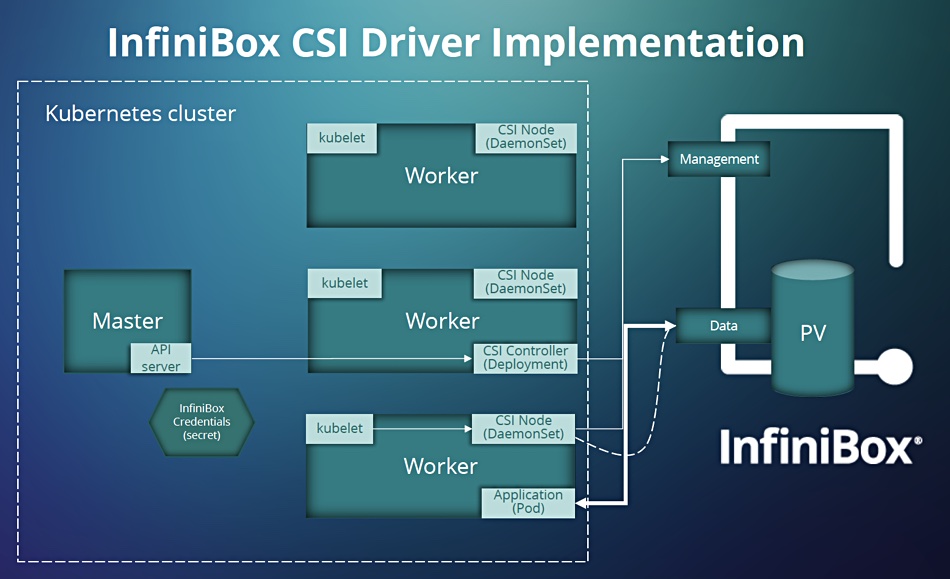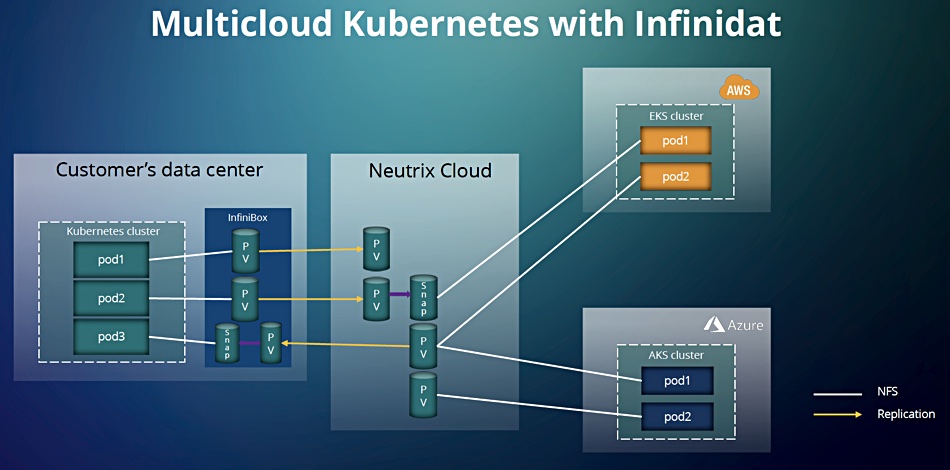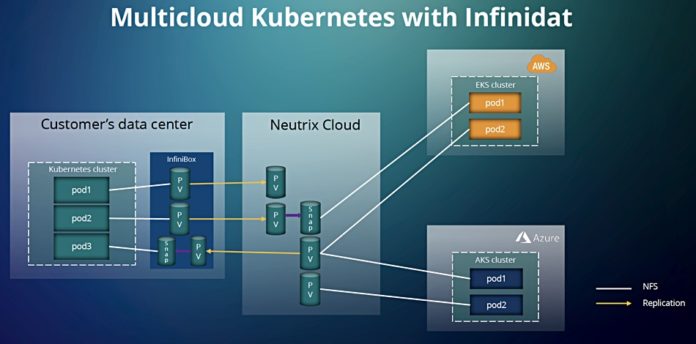Infinidat has plunked a CSI (container storage interface) driver into high-end InfiniBox arrays, along with services that support multi-cloud environments.
Infinidat VP Erik Kaulberg said in a phone briefing last week that companies are getting strategic about containers, and he cited Rancher Labs CEO Sheng Liang’s proclamation that “Kubernetes is the new Linux; you run it everywhere.”
He said multi-cloud is “the strategic direction for most companies”, and that this had led Infinidat to write a CSI driver that supports both strategic trends. This entailed adding services on top of the basic Kubernetes integration.
Customers are accustomed to the storage data services that legacy applications provide and they want these services with containerised applications, Kaulberg said.

The Infinidat CSI driver provides persistent volume (PV) block storage to a Kubernetes pod – which is a set of containers with shared storage and networking and a runtime specification. The driver provides a range of services such as dynamic provisioning, resizing, cloning, snapshots, external dataset import and restores.
This enables the transfer of PVs between InfiniBox arrays in a customer data centre, and to and from Infinidat’s public Neutrix cloud service. The PVs can be transferred from there to Kubernetes pods running in an EKS cluster in AWS, Azure or GCP.

Elastic Data Fabric
These storage systems form an Elastic Data Fabric. This clusters multiple Infinidat storage systems across multiple on-premises data centres and data in public clouds into a single global storage system that is scalable up to multiple exabytes.
The PVs are movable within the Elastic Data Fabric and are accessed across Fibre Channel, iSCSI, NFS and NFS TreeQs links. (NFS TreeQ is an Infinidat NFS implementation featuring directory quotas.)
Kaulberg expects container numbers to grow substantially as enterprises adopt a microservices approach. That means PV counts will increase and in anticipation Infinidat has scaled its CSI driver count to support hundreds of thousands of PVs.
Infinidat’s CSI driver enables InfiniBox to operate with VMware’s Tanzu Kubernetes Grid, Red Hat OpenShift, docker, Google’s Anthos and other Kubernetes suppliers.
InfiniBox arrays are distinguished by their use of DRAM caching, supported by some flash storage, to provide flash levels of performance with disk storage levels of pricing. It is the only prominent block and file storage array supplier that does not have an all-flash array.
The InfiniBox CSI driver is available free of charge with an Apache 2 license via Github and VSX, with native deployments by an OpenShift Operator or Helm.








